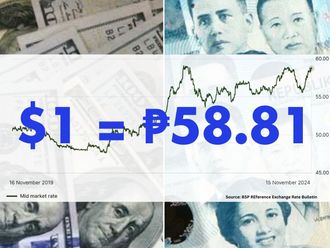Karachi: Pakistan's 13-fold increase in Islamic bond sales will help fund the country's budget deficit as US lawmakers debate whether to suspend aid on suspicion its military harboured Osama Bin Laden.
The world's second-most populous Muslim country will take advantage of last year's 30 per cent growth in local Islamic banking assets to sell sukuk, Saleem Ullah, the central bank's director of Sharia finance, said in an interview May 6. State Bank of Pakistan sold a record Rs189 billion (Dh8.35 billion) in the fiscal year ending June 30. Sales in Indonesia of rupiah-denominated Islamic notes are equivalent to about $2 billion (Dh7.34 billion) in 2011, according to the country's Finance Ministry.
Pakistan has received $14.6 billion in economic and military assistance from the US since 2005 to help revive growth and fight the Taliban along the border with Afghanistan. Arabian Gulf banks Albaraka Banking Group, the largest publicly traded Islamic lender in Bahrain, and Meezan Bank Ltd., owned by Kuwait's Noor Financial Investment Co., opened more branches in the South Asian nation this year, increasing deposits that can be put into government debt.
"I see a lot of demand for Islamic bonds and that will help the government borrow at cheaper rates if foreign aid channels are blocked," Abdullah Ahmad, head of treasury at Meezan Bank, the nation's biggest Sharia-compliant lender, said. "I definitely see the yields declining at sales next year," when sukuk issuance may rise 8.8 per cent to Rs200 billion, he said.
Treasury yields
Pakistan's rupee weakened 0.2 per cent to 84.80 per dollar since the US raid, Bloomberg data show. The currency climbed 0.2 per cent yesterday.
Yields on Pakistan's six-month non-Islamic treasury bills, used as the benchmark for pricing sukuk, also declined since the US operation as global commodity prices slumped. The rate on the debt fell six basis points to 13.42 per cent from May 2, according to data compiled by Bloomberg.












